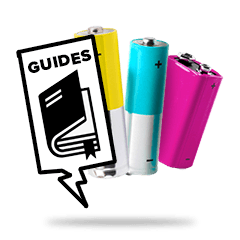Top of the agenda are potential flavour bans. Bright, sweet flavour restrictions may be the first call to cull due to underage appeal, but this is a complete oversight of the impact vape flavours have as an essential aid in helping smokers quit and transition into vaping as a less harmful alternative.
The next aspect of vape culture under fire is POS displays and regulations around the way vapes are displayed in traditional street-side business settings - going as far as to remove their visibility entirely. This fuels concern for vapes as a harmful product and backs the false belief that vaping is as harmful as smoking.
Packaging and presentation is heavily under fire, as well as POS displays. Every customer facing aspect of vape devices are deemed too child-friendly. Mirroring the regulations on traditional tobacco products, vape liquids and devices may adopt the same plain packaging standard which will make it harder for adults to identify and select their preferred products, as well as increasing ease for counterfeit products.
Disposable bans have been looming, with the government's aim to restrict vapes as much as possible, despite being an accessible and convenient alternative to traditional smoking. Bans on disposables will almost definitely lead to a black market boom of illicit vapes.
An additional addendum to proposed legislation is the inclusion of non-nicotine vapes falling under the same standards for sale as nicotine-containing products, aligning with common, responsible retail practices.
In the same vein as the very much legal and readily available cigarettes never facing an outright ban, it only makes sense to apply likewise application of provisions to vapes. Calls for extra taxes on vapes in line with cigarette standard taxation come alongside propositions to amend disposable quantities by allowing up to 10ml of e-liquid volume, in theory also creating a decline in electronic pollution.











